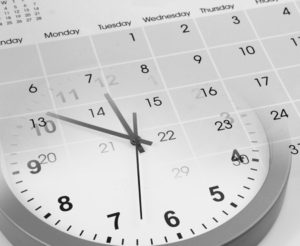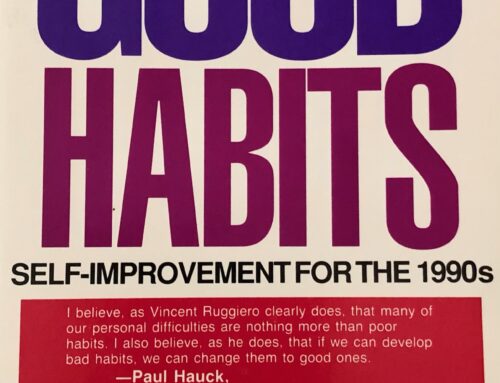This essay is the third in the series “Good Habits.” The discussion is based on my book of the same title.
The word “efficiency” frightens many people. Some see it as cold, regimented, and mechanical and think it makes life grim and joyless. Others believe it will diminish the quality of what they do. Both notions are mistaken. Efficiency actually expands time for us. Minutes saved here and add up to hours over days or weeks enabling us to accomplish more in the same length of time.
In the late 1950s as a young industrial engineer, I was responsible for conducting time and motion studies in a large mail-order company. My job was to identify which movements in a job are most economical and least tiring, My experiences quickly led me to three conclusions, First, that few people think much about the way they do their jobs; they simply fall into a performance pattern and continue with it no matter how inefficient it might be. Secondly, most people are unaware of the extent to which distractions and interruptions affect their performance and thus do nothing to avoid them. Thirdly, that many people squander time without realizing it.
What advantage would becoming efficient have for us? If we saved an hour a day, that adds up to 365 days a year. Beginning at age 30 and continuing until age 60 would save 1.31 years! This, of course, does not mean living longer, but accomplishing considerably more in the lifetime we have.
Efficiency in the workplace reduces the cost of goods in this country and the challenge of meeting foreign competition. It also strengthens the value of U.S. currency and our status among nations. But efficiency is not confined to the workplace. It can improve personal and marital relationships, parenting, and community activities.
There are many strategies that enable us to become more efficient. Among the most beneficial are these:
Avoid unnecessary tasks. For example, if you are in the habit of going to the store several days a week, consider combining the several trips into a single one and saving time.
If possible, delegate some tasks to others. In business might mean changing certain tasks from higher paid employees to lower paid ones. In the home it could mean busy parents assigning chores to children. This not only makes the role of parenting easier, but teaches children responsibility.
Take on fewer assignments. Some people volunteer for so many responsibilities that they become frustrated and, in some cases, neglect the more important ones. If you are such a person, limiting the number can make your life happier and improve the quality of their performance.
Minimize the distractions in your daily life. For example, let friends and family know that during your workday, you will not take any phone calls except in the case of emergencies. Also, if you are responsible for supervising the work of others, set limits on your availability for conferencing.
Put unproductive time to use. Whenever you know you will have to wait for someone else to be available, for example in a doctor’s office, take a pen and paper with you and make notes for letters to others, outline plans for work assignments, or even list ways you can become more efficient.
Skip TV commercials. This may seem impossible today when commercials interrupt programs more and more frequently. But here is a method that works. I have long watched news and commentary on two shows from 7 to 9 p.m. I now tape both shows, then watch the 7 o’clock show at 8 p.m. and the 9 o’clock show at 9 p.m. and fast forward past the commercials. That saves me 15 or more minutes during each show for a total of half an hour saved per night.
Time is the framework of our lives. We often lament that we have too little of it. That lamentation is understandable, so it is wise to remember that time is also a gift, and we will one day be asked to answer for our use of it. Efficiency will help us answer well.
Copyright © 2025 by Vincent Ryan Ruggiero. All rights reserved.




